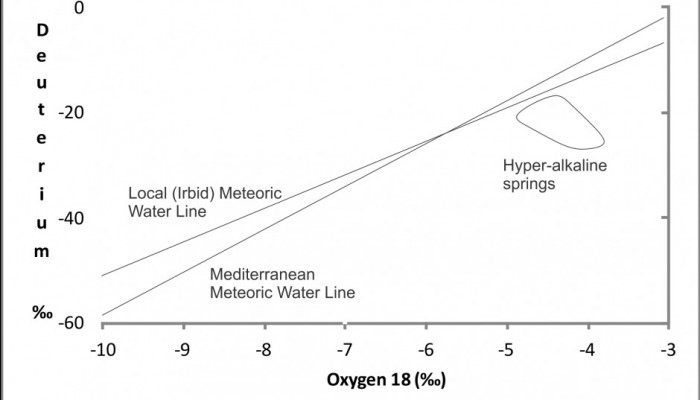This week’s Imaggeo on Mondays is brought to you by the photographer himself, who describes the striking scenery of the Conwy estuary in Wales… After a workshop with salt-marsh specialists in Conwy (Wales, UK), I stayed a couple of days to explore the surroundings. Living and working in The Netherlands, for me intertidal areas are typically wide, flat expanses of land, where the horizon is far awa ...[Read More]
If you didn't find what you was looking for try searching again.
GeoLog
Geosciences Column: Autofluorescence in polar regions – how and why?
Marine picoplankton, <2 µm, are one of the most ubiquitous fauna in the open ocean. These marine microorganisms are hugely important – being responsible for a significant proportion of oceanic net primary productivity. Researchers are able to track the evolution of their genomes and the transportation of these microorganisms by analysing ice cores, which offer the potential to study the evoluti ...[Read More]
GeoSphere
The Mysteries of Maqarin
We all know that cement is a man-made substance and therefore cement is always synthetic right? Wrong! In the unusual case of Maqarin, Jordan the stars aligned to produce natural cement and many of the “synthetic” minerals found therein. The Maqarin site has been the subject of an intense geological investigation by a consortium of over 100 researchers for years in an attempt to try an ...[Read More]
Geology for Global Development
Guest Blog: Mount Vesuvius Today
Christopher Dimech is a PhD researcher at University College London. We wrote about the Roman eruption of Vesuvius, and the consequences for Pompeii and Herculaneum, on our blog in June. Chris has spent some time at the monitoring station near mount Vesuvius, and here gives us an insight into the kind of research that goes on there. Italy is much better prepared for volcanic hazards today than it ...[Read More]
GeoLog
Geosciences Column: How curbing HFC emissions could reduce warming
Carbon dioxide is without a doubt the most famous of warming culprits. But would reducing emissions of this greenhouse gas be enough to mitigate climate change within this century? A recent paper published in Atmospheric Chemistry and Physics focuses on a less known substance that, if phased out, could avoid as much as 0.5 °C of warming by 2100. Hydroflurocarbons (HFCs) have an interesting history ...[Read More]
GeoLog
GeoTalk: Suzanne Hangx on Carbon Capture & Storage
Today in GeoTalk, we’re talking to Suzanne Hangx, who explains the great potential of carbon capture and storage and the challenges emerging technologies, like CCS, face. First, could you introduce yourself and let us know what drew you to geomechanics? Let’s start with the introduction: I’m Suzanne Hangx and I currently work as a researcher on geomechanics for subsurface storage containment techn ...[Read More]
GeoSphere
Interview with Dr. Pascal Audet
Today’s post is a special treat! An interview style post with one of the newest professors in the Department of Earth Science at the University of Ottawa: Dr. Pascal Audet. What is your background? e.g. What was your undergrad in, PhD. I graduated with a degree in physics from the Université de Montréal. By that time I knew I wanted to work in applied physics and I had always been cur ...[Read More]
GeoLog
Dust in the desert: Measuring it is only half the battle – Part 1 of 3
Fieldwork is vital to understanding all sorts of Earth processes, but that doesn’t make it easy! James King, a researcher from the University of Oxford, describes what it takes to set off on a scientific expedition… Although the classic text on sediment transport by wind by Sir Ralph Bagnold was written way back in 1941, the mechanics of dust storms and their effects on the climate are still ...[Read More]
Geology for Global Development
In the News (June 2013)
We highlight some of the items that have caught our eye in the news recently Volcanic History In a recent study, published in IOP Science, Irish historical records were used to trace the impact of volcanic eruptions on climate over a 1200 year period. Geological events are recorded by geochemical proxies and physical changes within the rocks – these are the lines of evidence that geol ...[Read More]
GeoLog
GeoTalk: Xavier Fettweis
Today in GeoTalk, we’re talking to Xavier Fettweis, an award-winning climate scientist from the University of Liège. He tells us about his work on the Greenland ice sheet. First, could you introduce yourself and let us know a bit about your current projects at the University of Liège? As a child, I was already interested by the meteorology thanks to a small weather station installed at my parents’ ...[Read More]

